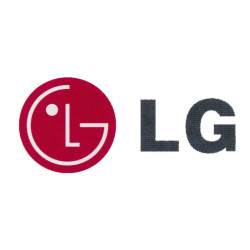 In what should not come as a surprise to those that keep their ears open, LG has confirmed months of hushed rumors by announcing that it has purchased webOS from HP.
In what should not come as a surprise to those that keep their ears open, LG has confirmed months of hushed rumors by announcing that it has purchased webOS from HP.
The agreement covers the source code, associated documentation, engineering talent and related websites associated with webOS. As part of the transaction, LG also will receive licenses under HP’s intellectual property for use with its webOS products, including patents acquired from Palm covering fundamental operating system and user interface technologies now in broad use across the industry.
The purchase of webOS by LG marks the end of the operating system as a mobile-focused piece of software, as LG plans to use the technology acquired to improve its Smart TV platform, instead of attempting to develop webOS as its own mobile operating system alternative, which will no doubt make the dedicated webOS community more despondent than they were previously.
Although the underlying tech and assets now belong to LG the following key details were confirmed:
- LG will assume stewardship of the open source projects of Open WebOS and Enyo.
- HP will retain ownership of all of Palm’s cloud computing assets, including source code, talent, infrastructure and contracts.
- HP will continue to support Palm users.
The last point that HP will continue to support Palm users may mean very little now in the wake of the purchase and transfer, but in practice, it means that HP will continue to maintain the current infrastructure already in use by current webOS devices. LG also assuming stewardship of Open webOS and Enyo means that LG will be keeping those projects viable for the open source community, though it’s not clear whether LG will invest in the projects financially beyond what has already been invested by HP during the initial open source spin-off, or whether LG will just keep the servers hosting the code running.
For its part, HP has confirmed that it will continue to support Enyo despite the stewardship moving to LG, with more development activity promised by the company, owing to the cross-platform nature of the framework and its use in current development in HP’s current cloud framework inherited from the Palm purchase.
While LG buying webOS may seem strange, the roots of the purchase go back to HP’s internally incubated Gram spinoff which was started by members of the webOS team with support from HP after HP officially ended support for the platform. For LG to buy webOS to shore up its Smart TV platform also shows how flexible and powerful webOS actually was and demonstrates that the operating system was capable of much more than just being an undersupported alternative to Android and iOS.
More details regarding LG’s webOS-powered Smart TV will be rolling out in the next few months, but it’s clear that LG has no plans for webOS as a smartphone platform and is furthering ties into its connected home initiative with its home appliances first announced during CES, with the goal of integrating webOS as the main operating system across devices. Whether LG’s grand plans for connected appliances will come to fruition remains to be seen, but buying webOS and integrating the technology as well as key people may indeed speed up that process.